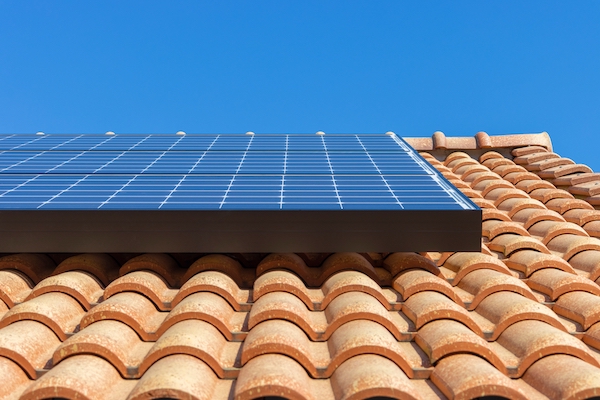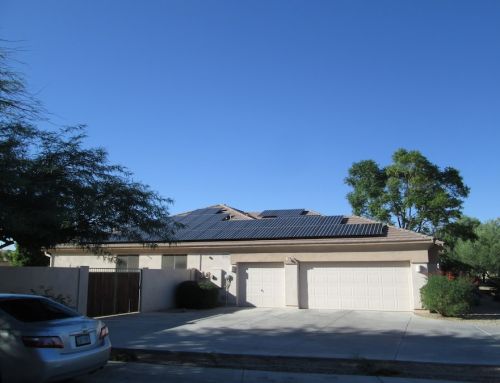 Types of Solar Power Systems: What Are Your Options in 2023?
Types of Solar Power Systems: What Are Your Options in 2023?
The solar energy industry is constantly evolving and there are more options available today than there ever have been before. If you’re thinking about installing residential solar panels, there are three main types of home solar systems to choose from: grid-tied solar, off-grid solar, and hybrid solar (aka solar with battery backup).
In this guide, we’ll explain how every type of solar power system works and the benefits of each so you can choose the best option for your home.
Grid-Tied Solar Panels
Most residential rooftop and ground-mounted solar energy systems are grid-tied. This means that they are connected to the electric grid, which allows them to send power to the grid and take power from it. There are two main benefits to being grid-tied. First, it allows you to buy electricity from the grid whenever your solar panels are not meeting your needs, so you don’t have to generate all your power yourself. Second, it allows you to participate in net billing, if your utility offers it.
Pros of Grid-Tied Solar Panels
Standard grid-tied solar panels have many benefits:
- Most cost-effective option for solar panel installation
- Eligible for tax credits and utility incentives like net billing
- Reduces electricity costs and carbon footprint
Cons of Grid-Tied Solar Panels
Solar-only grid-tied systems have one major drawback—they can’t work in a power outage. Grid-tied solar panels are interconnected with the utility grid, and when the grid goes down, they go down with it. They also don’t work at night because they don’t have a way to store solar power for later use.
There is a solution to both of these problems—hybrid solar systems—which we cover later in this guide.
Off-Grid Solar
Unlike grid-tied solar panels, off-grid solar panels are not connected to the electric grid. They cannot send power to or buy power from the grid, which means they need to be 100% self-sufficient. To accomplish this, off-grid systems have solar battery banks that store excess solar energy. The stored solar energy is used to power the home at night and whenever the sun isn’t shining. Off-grid systems typically include a generator in addition to battery storage for extra backup power.
Pros of Off-Grid Solar
When comparing grid tie solar vs off-grid solar, off-grid systems have many advantages:
- Bring power to a remote location without utility access
- Fully eliminates your electric bill
- Little to no fossil fuel consumption
- Complete energy independence
Cons of Off-Grid Solar
Off-grid solar energy systems are more complex to design and install than conventional grid-tied solar systems. They also require large battery banks, which can increase the cost significantly. But, off-grid solar installation is still much more affordable than running a new utility line to a remote location.
Hybrid Solar Systems
Hybrid solar systems are connected to the electric grid and work just like a standard grid-tied system. But, they also have battery banks, which are used to store the excess solar energy they produce.
Because they have storage, hybrid solar systems can temporarily disconnect from the electric grid during a power outage. Once disconnected, they’ll operate independently, like an off-grid system, until the grid is back up. This allows you to keep essentials running during a power outage and gives you peace of mind.
Pros of Solar Plus Battery Storage
Solar plus battery aka hybrid systems are becoming increasingly popular because of the many advantages they have over solar-only systems.
- Backup power during blackouts
- Eligible for utility incentives like net billing
- Access to solar power at night and on cloudy days
- Less fossil fuel consumption
Cons of Solar Plus Battery Storage
The only real downside to solar with battery storage is the cost. Solar batteries are typically the most expensive component of a solar panel system and can add several thousand dollars to your total solar installation costs. But they are eligible for solar incentives, including the federal solar tax credit, which reduces your federal income tax liability by 30% of your solar costs.
Find the Right Solar Power System for Your Home
SouthFace Solar & Electric installs all types of solar power systems for homeowners in Arizona. We can help you compare grid-tied vs off-grid solar or decide whether you should install solar with a battery or without to get the maximum benefit for your home and budget. We’ve been in business since 2008 and our team has over 35 years of combined experience you can count on for expert solar advice. We’re 100% locally owned and we are passionate about improving our customers’ lives and futures with solar energy.





